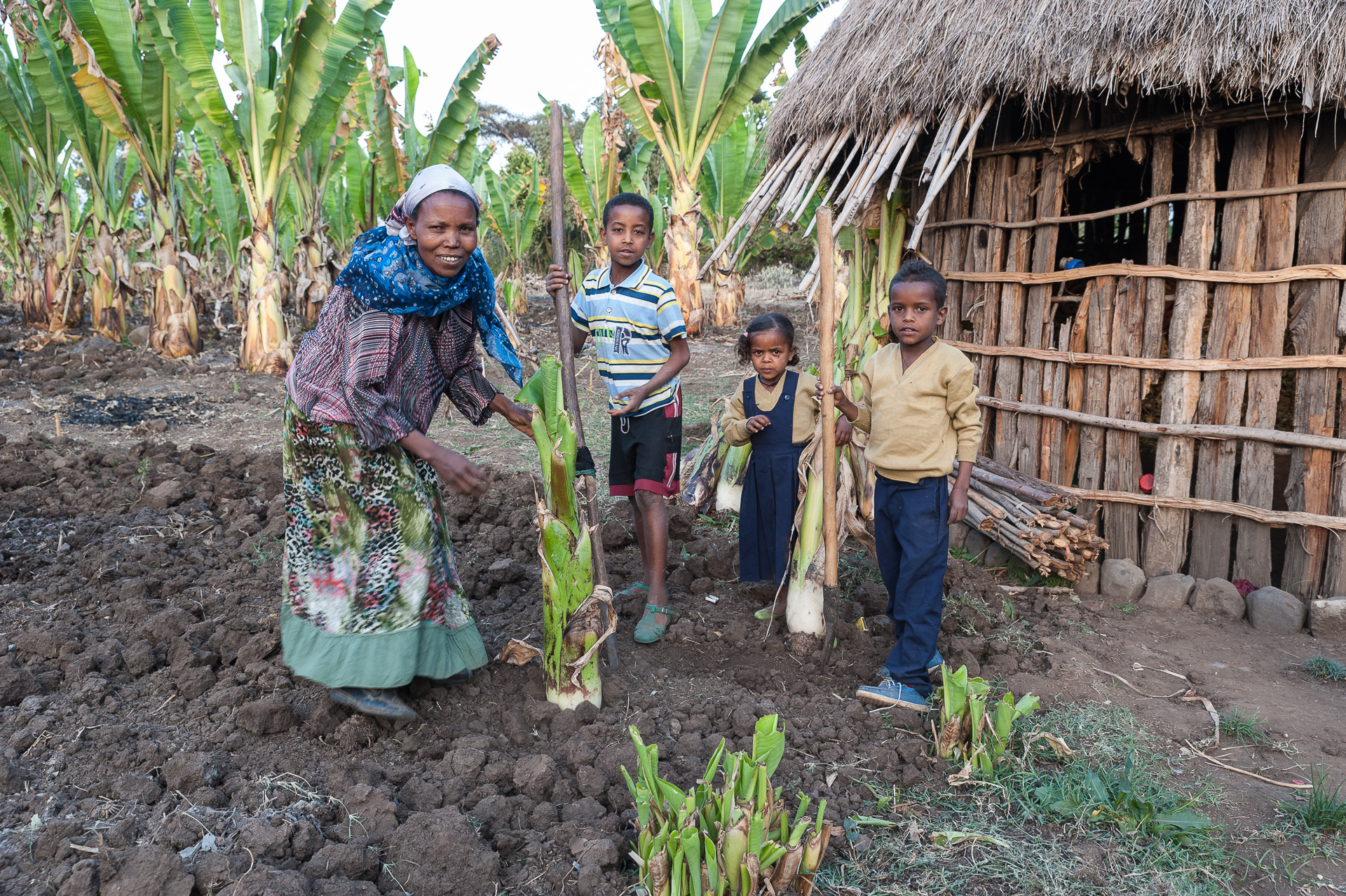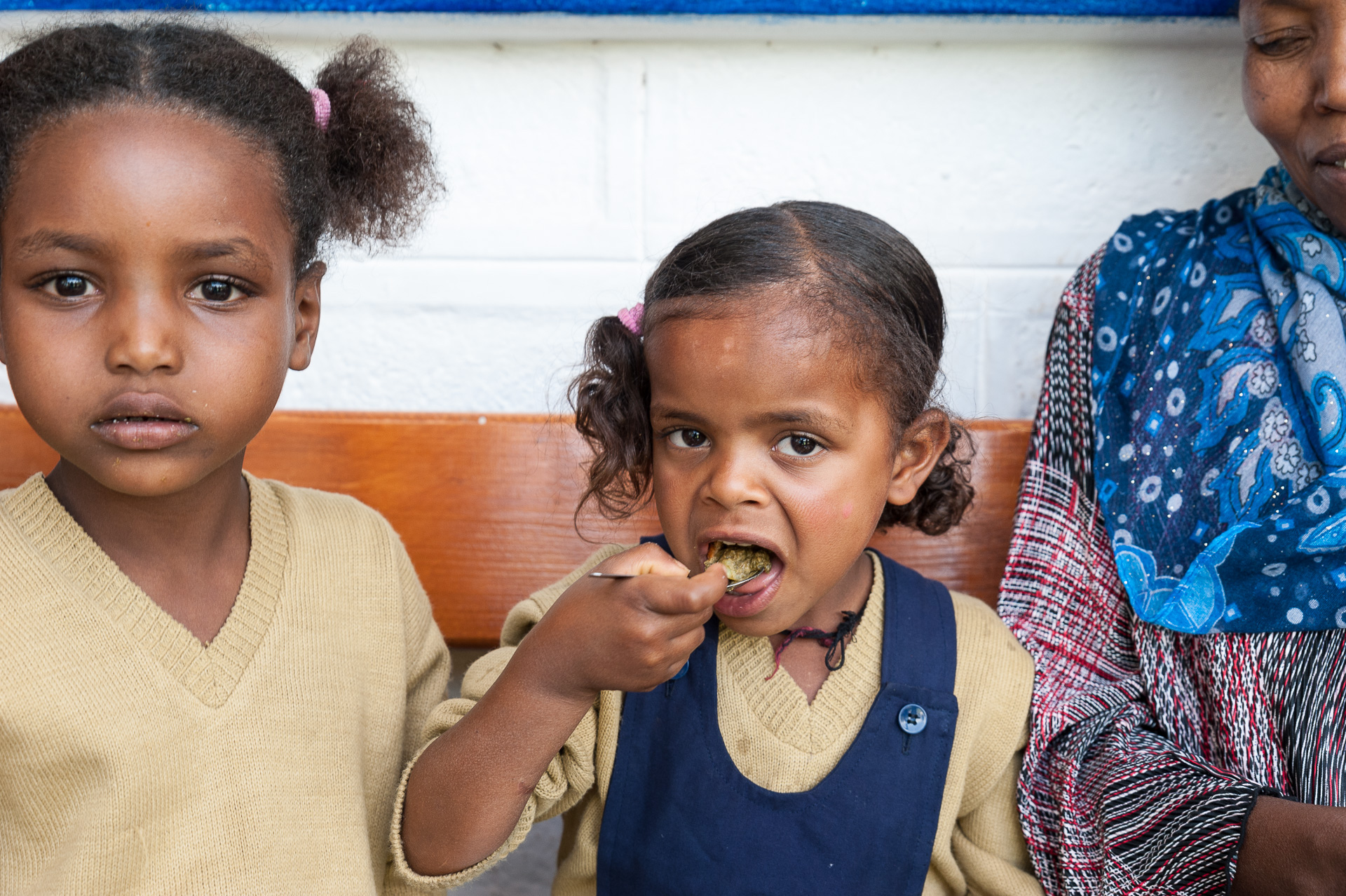In the Mesqan region in the highlands of Ethiopia The Hunger Project strongly promotes the Moringa miracle tree. Its leaves contain so much vitamins and minerals, they hugely enhance the nutritional value of a daily meal. This is great news, especially for pregnant women, new mums and small children, but not only for them. The older children also hugely benefit from it. This is how it works within the family of Ayelech Ebsa.

Ayelech’s house is tucked away between the fields and a false banana plantation, far away from the highway. False bananas are banana trees that don’t bear fruit. The trunk of this tree is the favourite food in this area. Ayelech lives with her husband and her five children, whose ages vary between 4 and 14 years. Her husband is a truck loader and often on the go. In order to earn some extra money, she distils alcohol.
Ayelech says “My favourite food is, what else, false banana. I have enough trees on my land to cook with it every day. I don’t grow vegetables, and I can only buy them when I have enough money.”

Ayelech had never heard about Moringa.
“My youngest children go to preschool at the Mesqan epicentre. They told me about a cooking demonstration of The Hunger Project. That triggered me! Before that, I had no idea, but now that I know about the nutritional value of Moringa, I think it can be a good addition to our daily meals. They said that Moringa is very rich in calcium, vitamins, proteins and much more.”
Her 4-year-old Mekedelawit adds “I love vegetables like tomato and spinach, but my mother doesn’t cook that very often. I tasted the Moringa porridge and loved it! I wish that my mum could make it more often.”

Moringa is not a native plant where Ayelech lives.
In the lowlands of Ethiopia, Moringa is a native plant and the people there eat it daily. In the highlands it’s a totally different story. Moringa is not native there. In 2015 The Hunger Project handed out 3500 Moringa tree seedlings in the Mesqan epicentre and trained thirty volunteers on Moringa. By now they know all about the high nutritional value of the tree, how to grow a Moringa seedling and how to cook Moringa dishes. These volunteers share all their knowledge with the villagers and they manage the common Moringa plantation. In March 2016 15,000 Moringa seeds will be grown into seedlings in the government nursery. In June these 15,000 seedlings will be distributed, so that they can be planted just before the start of the rainy season.

Ayelech wants to plant it on her land.
“I really hope I will get a seedling." Ayelech says. "I want to plant it on my land, so that I can cook with it too. All my five children go to school and I encourage them the best I can. It’s at least half an hour’s walk to get there, but they do that gladly. My 10-year old son Samuel wants to become a doctor and my 11-year old son Leul an engineer. Perhaps Moringa will give them more energy, so that the walk to the school will be easier. I will definitely give it to them every day!”

Text: Mariken Stolk
Photos: Johannes Odé
Empower mothers to grow healthy families today.







